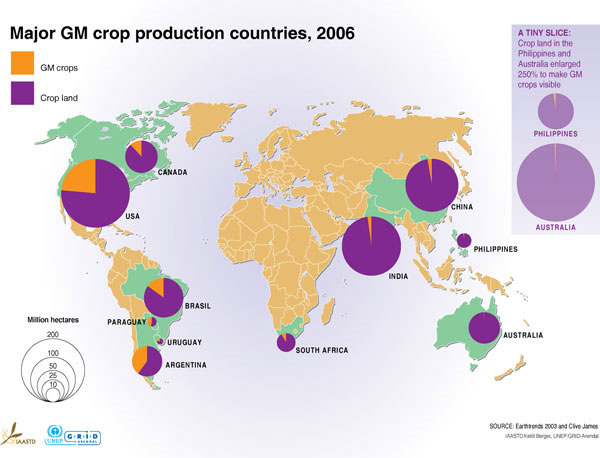For several years, he was leading the pack of activists who were destroying genetically modified crops in the name of conserving the environment, but in an ironical twist of events, Mark Lynas, one of Britain’s influential science writers and climate change advocator, shocked the world when he publicly apologized for his activism and fully embraced GM products.
Lynas is a winner of the Royal Society Prize as a result of his 2008 book, Six Degrees. He faulted the governments which banned Genetically Modified Organisms (GMO), saying it used a wrong premise in banning GMO. So, what an all over a sudden change of heart? Lynas spoke to AboutIslam.net in an exclusive interview.
So, Who is Mark Lynas?
Mark Lynas is an environmental writer and a biotechnology specialist from the United Kingdom who worked as a visiting research associate at Oxford University.
Are you also an activist?
I am a former anti-GM activist but I have since undergone a change of heart that I will never regret.
What are your views now about GM products?
GM products aren’t as bad as people are being made to believe. The truth of the matter is that these products are very safe for human consumption. The chance of one being affected as a result of eating GM foods is as remote as the same person being hit by an astronaut from space.
We know that GMO industry is a multi-billion outfit, were you bought?
I have never received a single penny from any industry, organization or any commercial interested in GMO. For me it is critical to set my integrity as an environmental commentator and also somebody who values scientific credibility. I have to keep a very strong dividing line between what commercial interests are in this area and what scientists are saying.
When you were an anti-GMO activist, how many countries have you visited and on the contrary, how many did you visit so far as a pro-GMO activist?
I was not a travelling activist, the information that we produced was spread through the internet but this was long time ago. I never involved myself in spreading fears that GMO was linked with cancer. However, since i became a pro-GMO activist, I have been to South Korea, USA, Keya, Uganda and Tanzania.
Don’t you think GMO is coming to derail communities’ cultures?
Some say it is foreign. GMO is foreign, so are mobile phones, Facebook. The modern world is coming. The traditional way of living is also changing. The world is always changing.

A Genetically Modified Organism (GMO) is an organism whose genetic material has been altered using genetic engineering techniques.
If we embrace GMO, don’t you think that we would be pouring millions to the international outfits that manufacture GM products?
Well, that is another concern, but there are other products that would be developed locally. Banning GMO is also disadvantaging young students’ scientists who i would not like them ending up as activists. The issue is if you ban GMO you will be stopping scientific research in your country. I would like to see a situation where scientists are becoming global researchers coming up with new GM products.
Why the change of heart. Does it mean you never believed in anti-GMO campaigns?
I was so passionate about anti-GMO campaigns that I could even go out in the dead of the night and destroy GM crops in the farms. But that was then when I knew very little about genetically engineered products and was just taking direct action based on misinformation.
What led to your change of heart?
I apologized not only for the physical destruction which I participated in of crops belonging to farmers who I had never met, but also for the intellectual destruction caused by the worldwide spread of misinformation and myths about biotechnology, many of which are still believed today by hundreds of millions of people around the globe.
This comes after I had conducted a lot of researches which convinced me that GM products were not really as bad as I was initially made to believe.
What is it that you didn’t understand then?
I did not really understand that DNA is a universal code, and that is all it is. I have since learned that DNA encodes information which determines the characteristics that an organism will have. And all living things share this system, from flies, to trees to people. By the way, we share 30% of our genome with carrots and wheat, and 80% of our genome with mice.
How did your fellow activists react to your move?
They called me all sorts of names and made very wild accusations that I was paid to change my views. But I am ready to present my bank statements for anyone who wants to follow it. My website was also hacked but I will never regret.
But a research conducted by French molecular biologist, Gilles-Eric Seralini has linked GM foods to cancerous tumors as well as liver and kidney infections. What do you say about that?
That was one of the worst pieces of scientific research over the last decade and it is unfortunate that some countries acted on the basis of such sensational works of anti-GM crusaders to impose a ban on GM products. It was a research with a lot of flaws. The study was part of the propaganda against GM products and even professional scientific associations including the European Food Safety Authority have dismissed it as having no merit.
But why is it that even most European nations haven’t wholly embraced GM technology?
The reason is simple: stringent and unfriendly regulatory systems. Most people around the world have been greatly misinformed about this technology and that is why it is important that the right content comes out. Most policy makers tend to be loyal to politicians who must always stick with what is popular.
Are there benefits of GM products?
Of course there are, and they are many. The only way to ensure food security with the expected population bulge is to adopt helpful scientific ways like GM technology.
So what is the way forward?
There is need for everyone involved here to drop their existing pre-conceptions and have open-minded and respectful discussions with everyone from all perspectives because this subject is highly controversial and raises high emotions.

This interview was conducted in 2008 and is currently republished for its importance.
